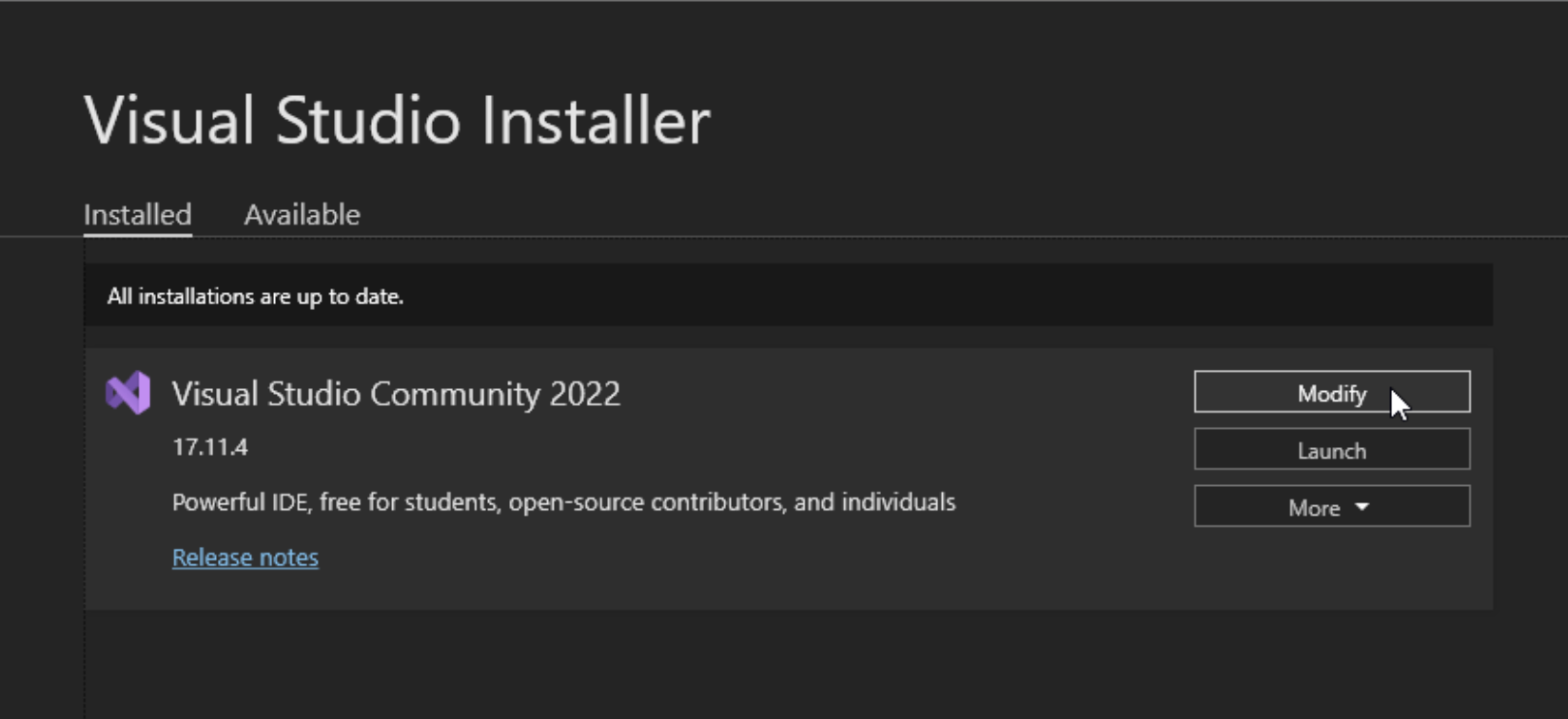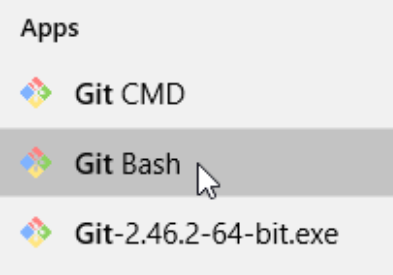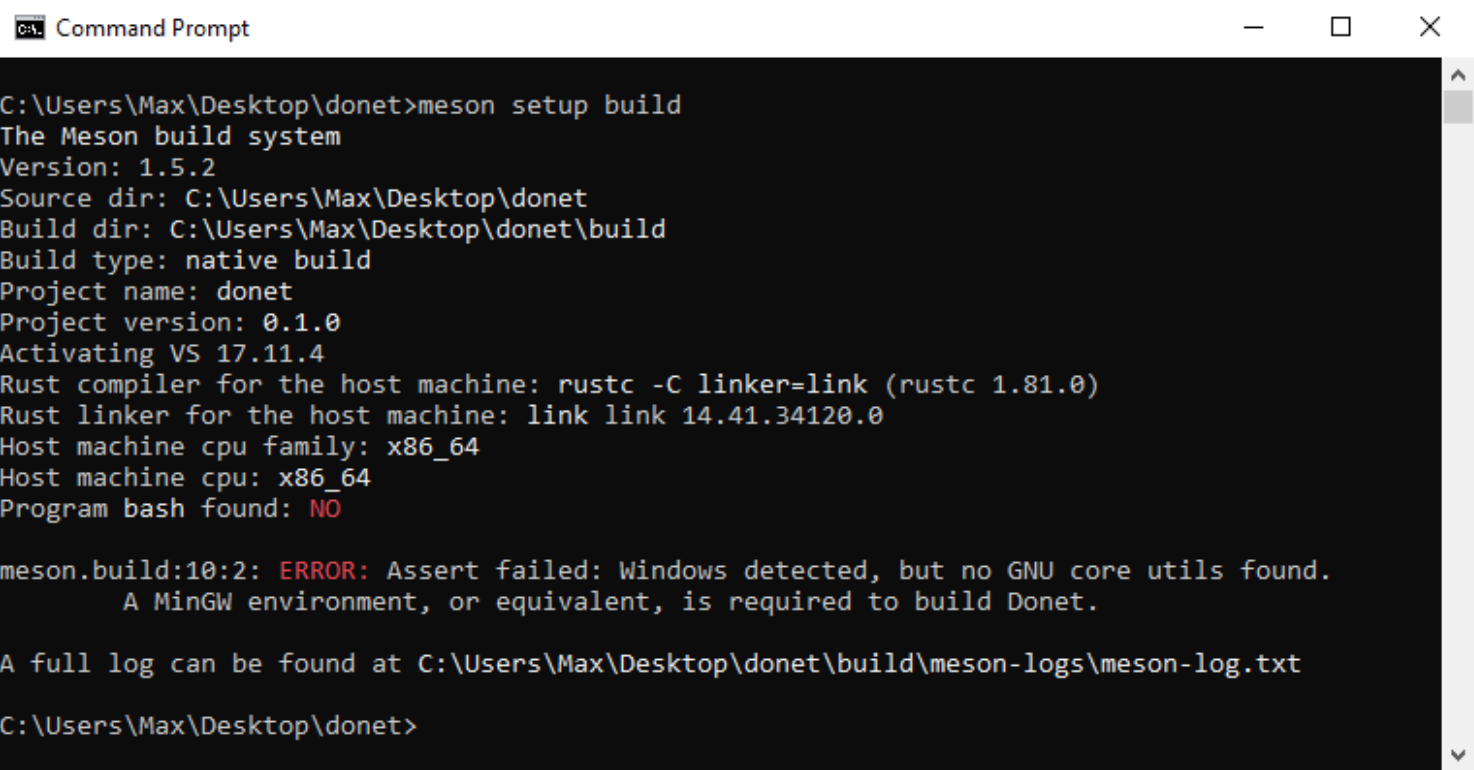Building on Windows with MSVC
Prerequisites
Microsoft Visual Studio
You will need Microsoft Visual Studio to build Donet on a Windows machine. To download Visual Studio on your machine, visit the following download page.
If you did not already have Visual Studio installed on your PC, follow the steps provided by the installer wizard. If you already have it installed, open the Visual Studio Installer and modify your installation.

In the modify installation view, scroll down and select the option for “Desktop development with C++”. This package is what includes MSVC and other build tools in your Visual Studio installation.

After selecting the package, modify your installation by clicking the “Modify” button on the bottom-right corner of the installer window.

Rust Toolchain
Donet is written in Rust, so you will need the Rust compiler. The Rust compiler (rustc) and other Rust utilities, such as Cargo, are installed through Rustup. To install Rustup, see the Rustup download page.
There is no installation wizard, rather, it is a command line tool. It is similar to an installation wizard; Simply follow the instructions given by the installer. If you see the following, you have installed the Rust toolchain on your PC successfully.

Important
Please verify that the active toolchain uses msvc.
The host triple should end in -windows-msvc.
Git Version Control System
Next, you will need to install Git for Windows on your system. The installation for Git is straight forward, you can follow the installer wizard with the recommended settings. Git for Windows also provides a MinGW environment for development, which is required to build Donet.
Meson Build System
You will also need the Meson build system to build Donet from source. Meson is usually installed as a Python PIP package, but the Meson project also provides an MSI installer wizard for new users. This also comes with an embedded copy of Python.
Getting a copy of the code
The Donet software repository is hosted on GitLab, and mirrored to GitHub. You can get a copy of the repository on your local machine by using Git to clone the repo.
As mentioned above, you will need a MinGW environment to build Donet. Therefore, the following instructions will use the Git Bash tool which is included with Git for Windows.

In the terminal prompt, clone the repo with the following command:
git clone https://gitlab.com/donet-server/donet.git
Building from source
The quickest way to build for debug is to do the following:
Run the following Meson commands under the project directory:
meson setup build -Dprofile=debug
meson compile -C build
Note
The instructions above will compile the Donet project and its
crates without optimizations and includes more verbose logging.
To build Donet for release, simply remove
-Dprofile=debug.
Warning
It is important that you are using Git Bash, as it launches with a MinGW environment provided by your Git installation. If you try to build Donet without this environment, you will receive the following error upon configuring the build:

If Donet compiles with no errors, you should have the built
executable in your Meson build directory, under the donet
subdirectory.
If you are working on a contribution to either the Donet daemon or libdonet, please run code linting and unit testing before pushing:
meson compile linting -C build
meson compile tests -C build
These checks should go over all source files in the donet/ and
libdonet/ source directories.
Tip
If you would like to build only certain Donet services into the output binary, you can use the available Meson options to trigger feature flags in the Crate:
meson setup build -Dbuild_state_server=true
If any build_* Meson options are passed,
--no-default-features is passed to cargo build, which disables
building all services. Only the service(s) that you explicitly
request to be built will be activated via feature flags.
